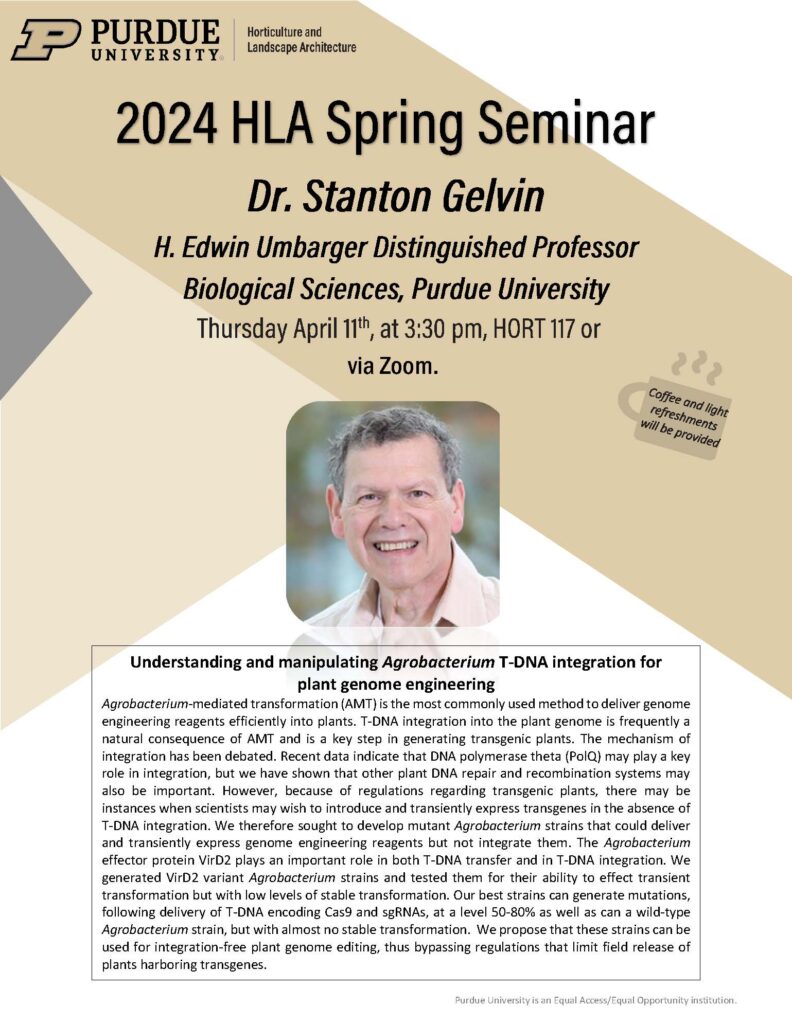
Dr. Stanton Gelvin
H. Edwin Umbarger Distinguished Professor
Biological Sciences, Purdue University
Thursday April 11th, at 3:30 pm
HORT 117 or via Zoom.
Understanding and manipulating Agrobacterium T-DNA integration for plant genome engineering
Agrobacterium-mediated transformation (AMT) is the most commonly used method to deliver genome engineering reagents efficiently into plants. T-DNA integration into the plant genome is frequently a natural consequence of AMT and is a key step in generating transgenic plants. The mechanism of integration has been debated. Recent data indicate that DNA polymerase theta (PolQ) may play a key role in integration, but we have shown that other plant DNA repair and recombination systems may also be important. However, because of regulations regarding transgenic plants, there may be instances when scientists may wish to introduce and transiently express transgenes in the absence of T-DNA integration. We therefore sought to develop mutant Agrobacterium strains that could deliver and transiently express genome engineering reagents but not integrate them. The Agrobacterium effector protein VirD2 plays an important role in both T-DNA transfer and in T-DNA integration. We generated VirD2 variant Agrobacterium strains and tested them for their ability to effect transient transformation but with low levels of stable transformation. Our best strains can generate mutations, following delivery of T-DNA encoding Cas9 and sgRNAs, at a level 50-80% as well as can a wild-type Agrobacterium strain, but with almost no stable transformation. We propose that these strains can be used for integration-free plant genome editing, thus bypassing regulations that limit field release of plants harboring transgenes.